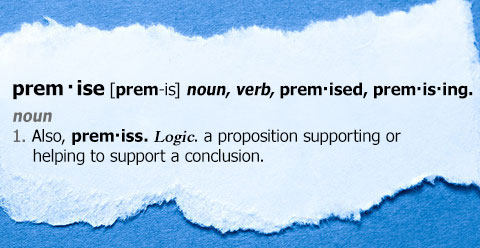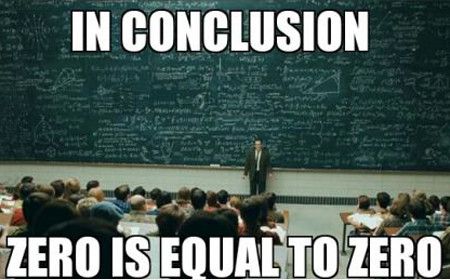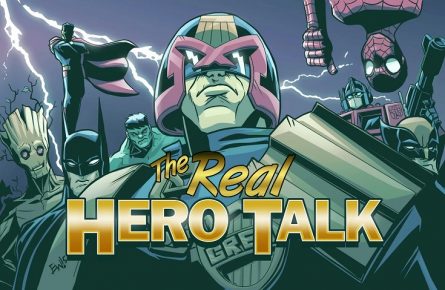A Porn Filter Vs The Right to be Forgotten

What is the difference between Britain’s porn filter and the Right to Be Forgotten?
They both have very similar censorship overtones and yet the reaction is vastly different between the two. If, for instance, you have an anti-EU bias, then the reaction is just a further example of why the EU needs to be reined in/toned down/left/dismantled (Delete as applicable). And yet, if you ask the same people the exact same question regarding the porn filter block, the likely reaction is that you will either be looked at weird for saying the same thing, or suggestions may be made about your motives for pointing out the similarities.
Why the difference?
The Premise of the Porn Filter vs The Right to be Forgotten
The first part to look at is the premise. The premise of both of these ideas is inherently different and while it seems rather pedantic to mention something that should be obvious to observe, it’s worth mentioning in either case. Perhaps the largest point to make is that the overall conclusion drawn from both the privacy ruling and the pornography filter are pretty much the same but due to the different way it reaches the same conclusion, it’s hard to argue against one and easy to argue against the other.
The premise of the pornography block is that the major commercial ISPs will provide a set of optional, but enabled by default, tools allowing parents to moderate the content their children will see over the internet. The restrictions are not just limited to porn either, the categories range from violence to a lovely catch-all term called “Esoteric Material” which more or less means whatever you want it to mean.
The premise of the privacy ruling is that a person, such as me, has the right to ask every search engine to remove links to data I do not wish the internet to remember. I don’t have the right to remove that data itself via google, I’d have to take that up with the content providers themselves and would likely fall foul of the stringent EU laws regarding media organisations. I also don’t have the right to remove data that’s in the public interest to remember, such as convictions for violence (Please note, I do not have such convictions).
The premise difference between the two allow the next two to influence how the public views the different ideas. However, before we discuss the frame, let’s talk about the conditions both ideas reached their conclusions in.
Conclusion Conditions
It’s somewhat big news for the EU, but it’s the largest shift to the far right in Europe since the 1930’s (Why yes, I did just use that as an excuse to pull the Nazi card) in the current EU parliament- meaning that people are really unhappy with the EU. In an age where Europe is questioning its commitment towards the European project, this privacy ruling was announced.
These conditions mean that large-scale changes coming from the EU are generally considered with weariness at best and outright hatred at worst. The right to forget is one of the biggest shake ups of internet privacy in the last ten years. This also comes fresh on the heels of various different scandals including the NSA and the various tax avoidance schemes that have been used by large American (though admittedly, not exclusively) technology companies.
Many Euro-sceptics are saying the ruling is less about the right to privacy from the perspective of the little guy, and more to do with the EU wanting to strike a blow against such companies.
By comparison, in the UK, the pornography block couldn’t have a better set of starting conditions. It was just fresh off the heels of the news regarding a teen suicide and the completion of several high-profile child abuse cases. As sad and depressing as those cases are, those are the perfect conditions for ensuring that such a thing passed by without parliamentary enquiry or enquiries from the House of Lords.
And this is the second difference between the two, the conditions in which the conclusion was reached upon their go ahead or not. With one, you’ve got one of the largest parliamentary problems that the EU has had to face, with likely trouble to appear at home in most major European countries. With the other, you’ve got a spate of teen suicides and child abuse cases, providing the biggest underscore to the “requirement” for such a tool that you could ever really ask for.
From what can be determined from this, the conditions in which both of these ideas come to their conclusions are just as important as the actual premise of both conditions.
The Frame
The frame, what is it?
The frame is a term used to describe how you talk about an issue, how you frame it. For instance you’ll never hear a pro-choice person talk about the less pleasant aspects of that platform. They’ll try to frame it in a positive manner, to give women a choice. While pro-life campaigners will frame it positively as well, they’ll big up the right to life and the other issues regarding giving everyone a chance at life.
Framing, therefore, is how you tilt your argument. It’s how you contextualize the argument and how you try to make it appealing to the undecided.
For instance, the pornography filter was framed as an attempt to prevent children from gaining access to materials most people can agree they should not gain access too, namely pornography. It was framed as a thing that would protect children and ensure they remained children. It was framed in the most “Protect the Children” way you could ever hope to ask for. This is why large scale media support against the filter did not exist.
The EU ruling was framed much quite a bit differently, namely it was framed in terms of an individual’s right to be forgotten from the internet from search engines. The person who got the ruling to pass, and thus is partially responsible for the ruling, was also using it to hide an unfavorable position from the world. I will refrain from mentioning what the issue was, but honestly, it’s not impossible to find out why he asked for the ruling.
The frame of the two issues, despite their similarity, is inherently different and that brings us to the first major difference.
Because the child porn filter was framed in such a way to ‘protect the children’, it inherently put those defending such a block in the moral high ground. After all, to attack such a measure designed to protect children means you must not care for children. Or perhaps worse, have designs upon them yourself.
The problem that the EU ruling had is that it was framed in a manner by a court and by a man who wished to hide his previous accidents from returning in a search engine query. This brings two points to the mind of anyone who hears it. Firstly, there is the old belief that if you have nothing to hide then you have nothing to fear or desire the internet not hold information. Secondly, it brings up the ineventible problem of who else will use it for personal reasons.
More astute readers of the news article would realize that the pornography filter has the same overtones as the EU ruling but because is framed in such a different way, one method is acceptable and one method is not.
Ironically, despite this being to showcase the difference, it’s for the same reason, logical fallacies. The porn filter uses three fallacies to great effect, even if the actual informer of the issue didn’t intend it.
Loaded Question: – This is where someone asks you a question that has an assumption of guilt built into it, making it impossible to answer without appearing guilty. The inherent question when decrying the porn filter is why would anyone want to block this?
This in and of itself does not become a loaded question, until you apply the further fallacy.
Moral High Ground Fallacy: – The assumption of moral rightness, which automatically implies that anyone attempting to argue against you on the issue, is inherently in in the wrong, morally speaking. I mean, who doesn’t want to protect kids’ right? I mean the only ones who wouldn’t want to do it are those that don’t ……………
The ultimate power is that the question when questioning the pornography block is “Why do you oppose this?” while the one when you express support for the privacy ruling is “Why do you support this?”
What’s Been Learnt?

Because everyone needs a laugh.
I think it undermines a crucial flaw with people’s relation with tech, with tech it doesn’t matter so much how you do something (well it does, but only depending on some conditions that don’t apply to how society relates to tech) but the conclusion that is reached from doing the something. Many ideas, such as the regionalism of the internet, can lead to the same place as another idea such as the Right to Privacy and the pornography filter.
It also highlights that for some people, this might be the first they are hearing of both of these issues, the mainstream media does not devote enough time or energy towards the technology we use and the relative minutia of how it is used and regulated. Considering the power that some companies have *cough Google cough*, it’s an issue that some people seem to be ignorant of and some people seem to want to bury their heads in the sand.
Above all, though, perhaps I’ve proved that the substance of something matters little, it’s how it’s perceived by people that plays a larger role in how they react to a new idea.











“major commercial ISPs”…does that mean that there are ones that are exempt?
Enabled by default…sounds like “opt out” and other such BS I’ve heard before.
Basically the focus was on the major ISPs such as Sky, Virgin and BT and another one I can’t quite remember off the top of my head. The press collectively refers to the major ISPs as the big four, but there are more than just that. Essentially it was mandated by government that they must have this filter, or they’d be forced to implement it via legislation.
The on by default is technically a good security idea to enforce the use of the filter, as people aren’t likely to remove the defaults unless you specifically want to fiddle with a router or internet package, however that doesn’t change the fact that it’s still very dicey in terms of effect on the internet, and your ability to see it.